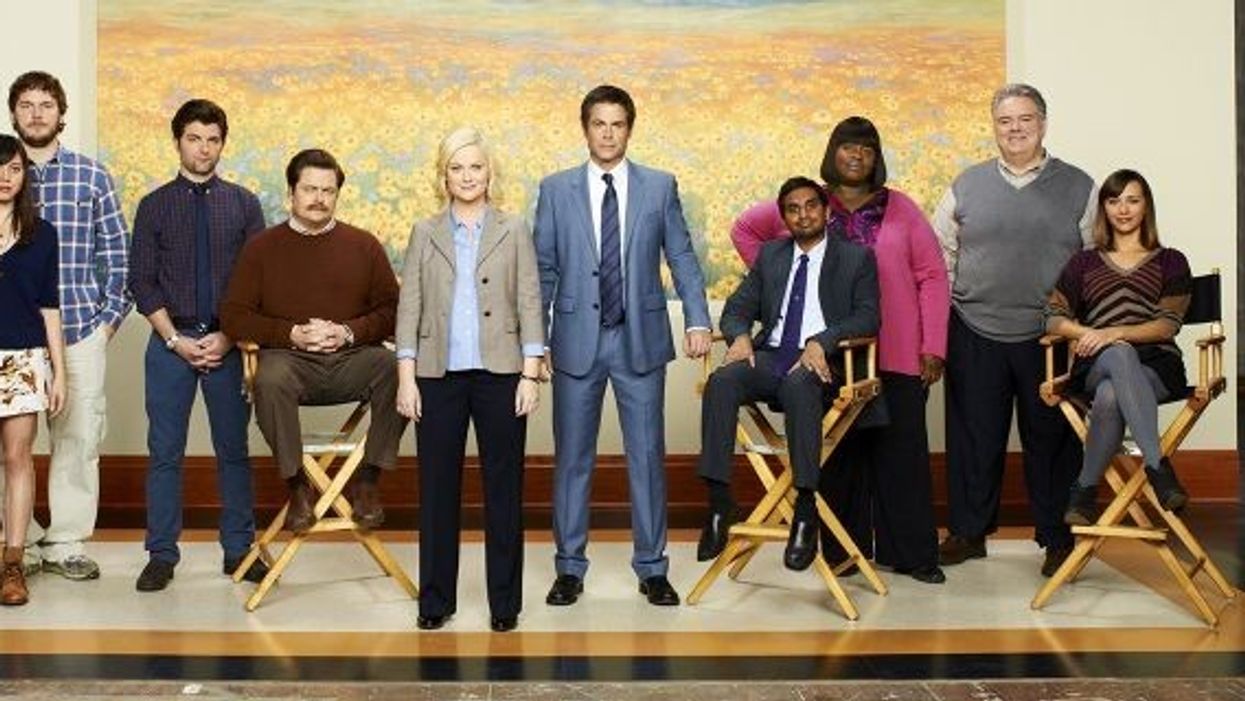5 Essential Writing Tips You Can Learn From 'Parks and Rec'
Parks and Rec is one of the most successful TV comedies of all time. It's a unique show that capitalized on an audience unsure how they felt about government.

The financial crisis in American hit in 2008. Suddenly, people were paying a lot more attention to the government. And guess what? None of it was funny.
Lucky for us, Michael Schur and Greg Daniels were off in a room somewhere, talking about TV show ideas. They pitched a bunch back and forth but kept going back to chasing a show that felt like The Office, but in the public sector. After they fleshed out that idea, it became Parks and Recreation, and the rest is history.
Check out the video from Behind the Curtain and let's talk writing tips after the jump!
1. What does your character believe in? And who are they trying to convince?
One of the coolest things about Parks and Rec is that each character has a mission about who they are and what they want to accomplish. For Ron Swanson, that mission is nothing. For Leslie Knope, it's everything.
We've talked about the need for your character to have a code before, and how it can add to their arc.
This helps in the pilot because a lot of times those stories need to come from a personal desire or drop you into a world you need to understand slowly.
So make clear decisions about your character, who they are, and what they believe. Then let the plots develop from that.
2. Can you make a drama a comedy?
If you're having trouble coming up with an idea of what to write about, think about a simple genre switch. When they were writing Parks, the team was watching a lot of The West Wing. They kept coming back to plot points like trade wars with China and turf wars in the Middle East and thinking about what those would look like in a comedy.
They scaled it down to arguing with Eagleton and soccer teams arguing over the use of a field, and let the ideas run from there.
So think about how a simple switch of the genre can give an idea legs.
3. Find your Us vs. Them
One of the unique ideas inside Parks is that the rivalries and anger are not actually within the department. Instead, the department functions like a family. Sure, there are small arguments and Gerry, but they usually stand united against an exterior force.
When Leslie runs for Mayor, her team joins forces; they don't run against her.
This construct of Parks Dept vs. the outside allows for a wider area for the story to go. There can always be an outside force coming in like the Venezuelan government, or auditors from Indianapolis, or even a tech company. You never run out of ideas for shows when you're continually rotating who's coming in.
And you can build your cast out from there too. And play with archetypes.
When that feels stale, you can unite with your enemies. Like they did when Pawnee joined with Eagleton.
4. Let your actors (or characters) take a fun run
When Parks was in production, they'd always shoot one or two takes the way it was scripted on the page. Then they would let the actors run wild. There would be improv actions, lines, and impulsive decisions. This gave them a ton of options in the edit.
They got on the same page when it came to necessary exposition, but the show always felt fresh and real because so many of the actions and reactions came from natural places.
If you're not shooting, a way to try this in writing is to just do a rewrite pass where you allow people within a scene go a little wacky. What happens if a character tells a secret or gets upset or kisses someone? Let these weird things happen and see how it contributes to the dynamic of the story at hand.
5. Premise supports the relationships
When you're writing, it can be easy to spend the most time on the premise. You want there to be a really noisy logline, so people tune in, but if you don't have engaging characters with ongoing problems and goals, then your premise will burn off quickly.
And you'll be left with nothing.
A great premise can sustain a movie, but it can't give you 100 hours of TV. Focus more of your energy at the interpersonal stories that will carry you forward. That's what people will look for in your TV pitch more than just an exciting pitch.
What's next? Learn writing lessons from The Office!
"The Office" is one of the most successful shows in recent memory, due in large part to its excellent writing.
Click the link to learn more!















![Ethos, Pathos, Logos: 20 Effective Ways to Advertise [Infographic]](https://nofilmschool.com/media-library/ethos-pathos-logos-20-effective-ways-to-advertise-infographic.jpg?id=34064614&width=600&height=600&quality=90&coordinates=560%2C0%2C0%2C0)

